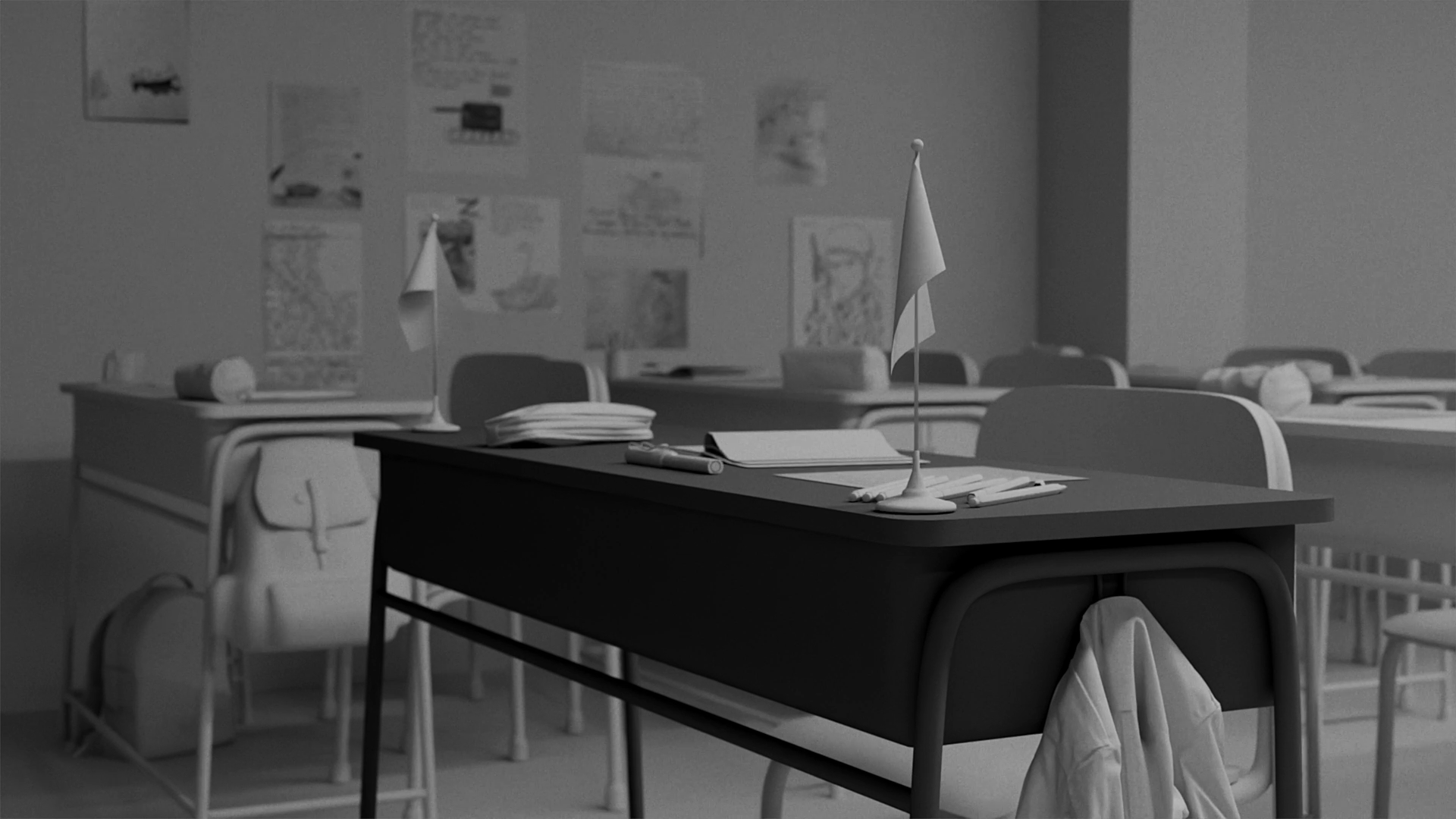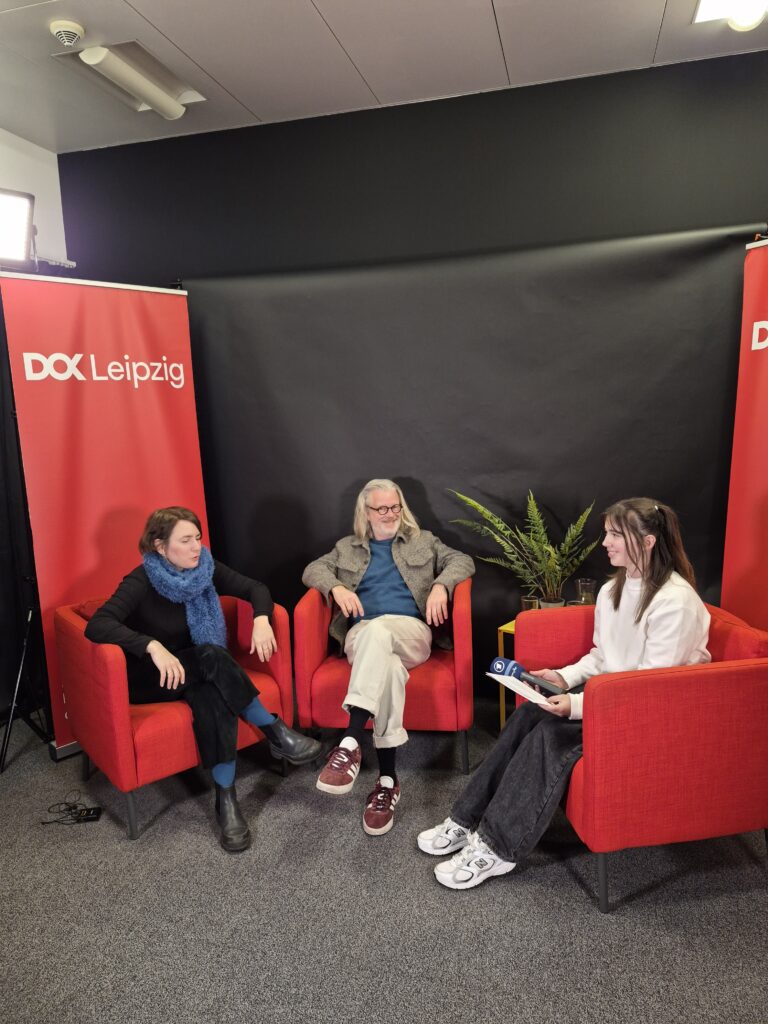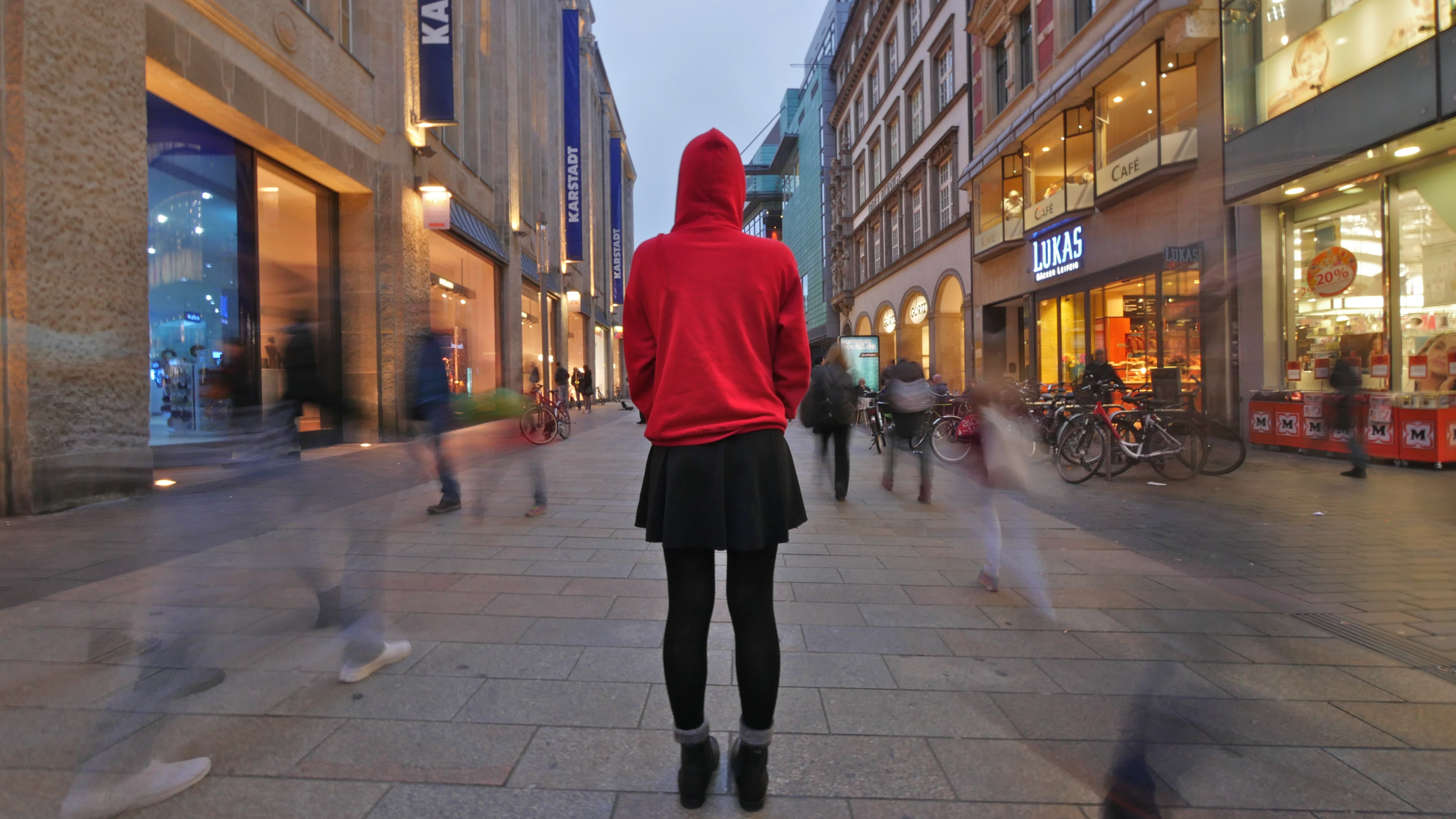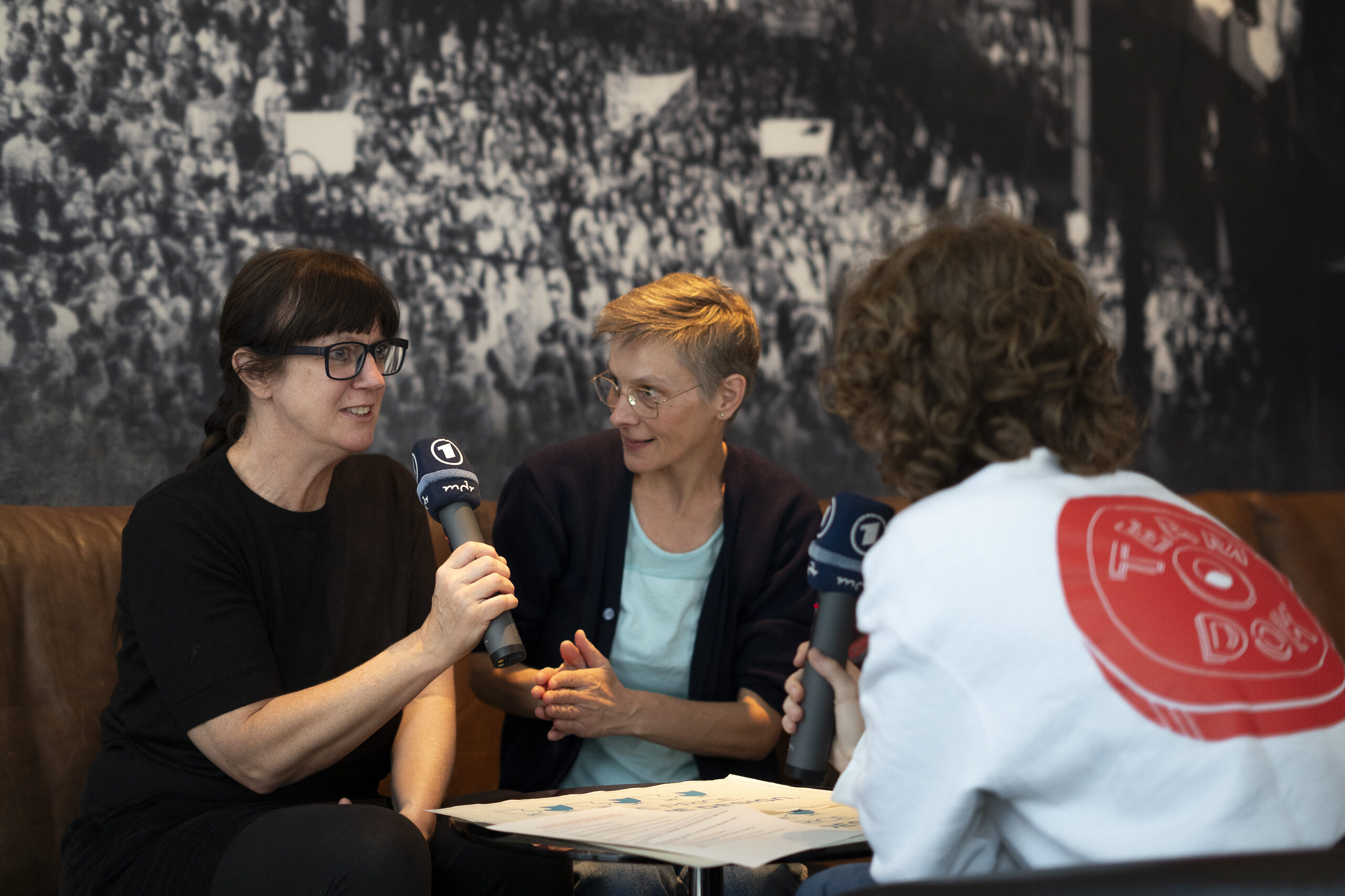The film “Active Vocabulary” centers on the story of Maria, a young Russian teacher who speaks out against the war in her classroom shortly after Russia’s invasion of Ukraine. After being denounced by one of her students, Maria is forced to flee to Germany, where she now also works as a teacher. Among other things, the film explores the relationship between school and politics. During DOK Leipzig, we had the opportunity to speak with filmmaker Yulia Lokshina and her dramaturgical advisor Philipp Hartmann.

The film is called “Active Vocabulary.” Why did you choose this title?
Yulia: Good question. The film is largely about how we name the things that surround us. And how language also shapes our ideas about how we see the world and reality. So it’s not a phenomenon that has only existed since the invasion began. Of course, it’s been around for a long time, but the war has been given a new name and the term “special operations” has been introduced, which has created a different idea of it. And that’s why the film is called “Active Vocabulary.”

The teacher’s story is a very personal one. How did you become aware of it and what particularly touched you about it?
Yulia: When I started working on the film, I came across several cases of denunciation and betrayal in the classroom. Maria, the protagonist, was one of those people to whom this happened. There were reports about her in the German-language press, so I contacted her because I knew she had come to Berlin. What impressed me greatly was that it seemed to be a matter of course for her to be honest with the children she taught. And that takes courage, because speaking critically about the war was very, very quickly criminalized. And she was betrayed by the children with whom she had previously had a relationship. She taught them, she knew them for a long time, and how generously she spoke about them afterwards. She said again and again that they were actually very intelligent children and how much it shook her that a student had apparently betrayed her. She seemed to understand systematically that something had shifted in the idea of what is right and wrong.
One of the central storylines in the film “Active Vocabulary” is the protest in the forest, where Russian women demonstrate against the development of a nature reserve near Moscow. Why do you show this storyline so prominently in the film?
Yulia: In this storyline, a piece of forest is being cleared to make way for a school. And that in itself is already a violation in the eyes of the people protesting. And there’s this moment in the film where the school hasn’t been built yet, but as an institution it has already been given new rules. So schools are changing, new schools are being built, old ones are changing or are in danger of changing dramatically.
Philipp: The protest is also about the fact that a new neighborhood is about to be built, so it’s about the whole gentrification process. So the school is really just the outpost. And I find that interesting because no one actually has anything against schools being built, on the contrary. But in this case, the school is, if you will, also being misused to clear the forest and expand.
The film also deals with the connection between school and politics. How political do you think school should be?
Yulia: I would say that school is a very political place. But then, of course, it is also an institution that plays a role in supporting the state. And that’s why school is always dependent on the form of society in which it exists. In my opinion, it’s great when there are teachers who encourage critical thinking. Yes, school is a political place, and depending on the system, that can be more or less dangerous or even progressive.
Philipp: I think that teaching students to think independently and form their own opinions is the most important thing, and that school should provide that opportunity. And that’s how the film works. I would say, Yulia, that you don’t prescribe anything or explain anything unequivocally, but rather offer something that viewers can and perhaps even must think about.
Okay, thank you very much for taking the time to tell us a little more about your film. All the best for “Active Vocabulary.”
Jule & Sophia





